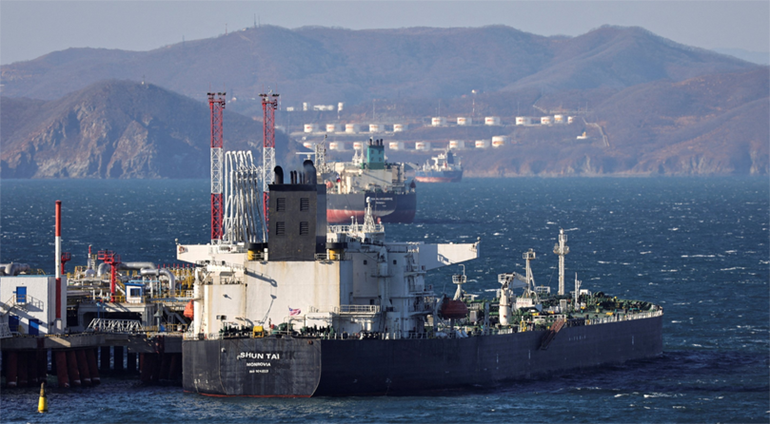
25% of Russian seaborne crude oil shipments since restrictions started on December 5 were insured by western insurance companies.
Based on an analysis of data from Kpler states that 18 Russian crude oil cargoes have been loaded onto western-insured tankers since the price cap started on December 5, representing around a quarter of the 63 vessels carrying Russian crude between then and December 25.
Nine vessels were destined for India, six were headed for China and one to Turkey. Each vessel had current insurance coverage from a western insurer.
Four other vessels carrying Russian crude insured by western companies were bound for Bulgaria, which, due to the dependence of its refineries on Russian crude, is exempt from the EU’s ban on importing Russian oil until the end of 2024.
Global protection and indemnity insurers issued amendments on December 23 for certain policies, including charterers’ liability cover, excluding losses coming from the conflict “or any expansion” of it.
The London market’s year-end renewals are approaching their deadline, with market participants reporting very low appetite for reinsurers to extend so-called war risks insurance for the region.
According to a Financial Times, this could also cause complications for shipping Kazakh oil, in particular, the Caspian Pipeline Consortium, which moves oil from landlocked Kazakhstan to the Russian port of Novorossiysk for shipment across the Black Sea.
In the first three full weeks of December, Russia exported approximately 50mn barrels of its own crude via the sea, compared with 67mn barrels in the same period in November.
Russian president Vladimir Putin signed a decree, which comes into force in February and will remain effective for five months, stating that the Kremlin will ban the sale of the country’s crude and crude-related products under contracts that “directly or indirectly imply a price cap mechanism”.
The decree suggests that it “may grant special permission” in certain circumstances for some purchases under the cap to continue, a wording potentially paves the way for Russia to continue to sell crude to producers in markets such as India and China.
Despite the price-cap mechanism allowing western companies to continue to underwrite such cargos, it has become harder for shippers to get some types of insurance.
by Yana Keller




